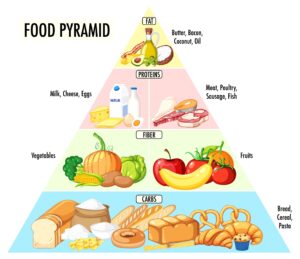Support Your Body and Baby with Balanced Eating
During pregnancy, what you eat matters—for both your baby’s growth and your own physical well-being. Many moms-to-be experience issues like constipation, skin problems, fatigue, or swelling. These symptoms are often linked to nutrient imbalances and poor gut health.
Emerging research in molecular nutrition shows that gut microbiota plays a critical role in maternal health. This guide introduces essential nutrients to focus on during pregnancy, along with simple, gut-friendly eating habits that can help you feel better from the inside out.

-
Gut health and pregnancy are deeply connected
Pregnancy alters hormone levels, which in turn shift the balance of gut flora. When good bacteria (like Bifidobacteria and Lactobacilli) decrease, digestion and immune function can decline—and some studies suggest it may even influence fetal development (Wang et al., 2023, Front Nutr).
That’s why probiotics and prebiotics are so important. Probiotics (like yogurt-based cultures), and prebiotics (such as soluble fiber from oats or seaweed) work together to create a synbiotic effect—nourishing beneficial bacteria and supporting gut balance (Capozzi et al., 2022, Nutrients).

-
Common nutrient deficiencies and their impact
Pregnancy increases the demand for key vitamins and minerals:
-
-
- Iron helps prevent anemia and supports oxygen delivery.
- Calcium is vital for fetal bone development.
- Zinc aids cellular growth and immune strength.
- Magnesium supports nerve and muscle relaxation.
-
When these are lacking, fatigue, cramps, and immune imbalances can worsen (Zhou et al., 2021, J Matern Fetal Neonatal Med).
Additionally, protein builds fetal tissue, and healthy fats (especially DHA) are essential for the brain and nervous system. Aim to get protein with every meal, and choose fats from fish, nuts, or avocado over fried foods.

-
Simple strategies for nourishing your microbiome
-
-
- Include soluble fiber daily: konjac, oats, seaweed, barley, etc.
- Eat fermented foods regularly: miso, pickles, tempeh, or koji.
- Add prebiotic-rich foods like bananas, onions, soybeans, or beets.
- Consider a synbiotic supplement to combine prebiotics + probiotics for better gut balance.
-

Conclusion
Supporting your gut and nutrient intake can help ease pregnancy discomforts and boost both your immunity and energy. A diet rich in fiber, fermented foods, and balanced nutrients creates a healthier internal environment—for you and your baby.
Even small dietary improvements can form the foundation for long-term health. Start with gentle choices that work for your body, and nourish your journey with care.
Your Complete Guide to “Maternity Hands Care” – A Prenatal Therapy in Tokyo
-
- Daily Lifestyle & Self-Care Tips
– Posture, breathing techniques, self-massage, wellness routines
- Daily Lifestyle & Self-Care Tips
31. How to Sit Comfortably During Pregnancy
32. Gentle Maternity Stretching for Non-Active Moms
33. Gentle Nutrition for a Healthy Pregnancy
34. Warming the Body and Reducing Swelling During Pregnancy
35. Gentle Gut Habits During Pregnancy








